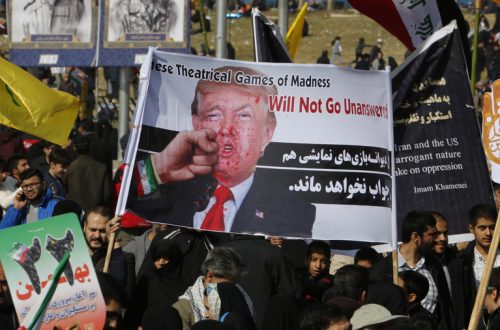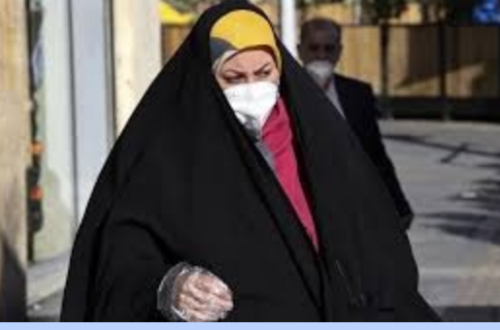This is a guest post by Ben Cohen of Z Word
In his latest interview with Der Spiegel, Mahmoud Ahmadinejad is by turns ingratiating (“By the way, thank you once again for coming. You are Germans, and we think very highly of the Germans,”) haughty (“You are journalists, not representatives of NATO, which is why I will not explain my position to you in this regard,”) petulant (“Besides, I didn’t even want to meet the Italian politicians,”) and conspiratorial (“Mr. Obama’s biggest problem has to do with domestic policy…the new US president is under pressure from these groups.”) And yet, for all those swings of mood and tone as well as those dark hints – no, he doesn’t specify which groups, but you can guess – an unmistakable clarity emerges.
In part, that is because the Spiegel journalists were admirably direct with their questions, particularly on the deceit and concealment which has characterized Iran’s nuclear program. But one also has to give credit where it’s due: Ahmadinejad is guided by strong convictions when it comes to the conduct of international relations, and he wants everyone to know about them.
When Spiegel interviewed Ahmadinejad three years ago, much of the discussion involved the journalists trying to persuade the Iranian President that the Holocaust was an indisputable historical fact. Though they return to that subject again, this time the discussion is more wide-ranging, with Iraq, Afghanistan and relations with the US sharing space with Ahmadinejad’s barbed missives against the “Zionist enemy.”
On Afghanistan, he adopts the “lack of opportunity” explanation for terrorism; if only the money spent on the military campaign had been spent on infrastructure, then we wouldn’t be in this mess. “Factories and roads could have been built, universities established and fields cultivated for the Afghan people,” he says. “If that had happened, would there have been any room left for terrorists?”
Well, yes, particularly if those universities were open to women. Correctly, the Spiegel journalists conclude that Ahmadinejad has no interest in combating the Taliban. His formula for Afghanistan is his formula for Iraq, craftily exploiting the rhetoric of popular sovereignty but convincing to only the most asinine of anti-imperialists.
In some ways, what we have here is classic power politics. Ahmadinejad understands that changing the local balance of power, and remaking the region in the image of Khomeini’s revolution, requires the rolling back of the US in Iraq and Afghanistan. Above all, it entails not making compromises on the nuclear front.
As in the 2006 interview, in 2009 Ahmadinejad again denies that Iran’s aim to is to weaponize its nuclear program. But saying so is one thing; offering concrete guarantees is quite something else. Pressed by Spiegel as to why Iran continues to enrich uranium, Ahmadinejad answers that this line of questioning is old hat. The countries of the Non-Aligned Movement and the Organization of the Islamic Conference have all accepted Iran’s right to enrich uranium, so who cares about Security Council resolutions? Were he better briefed, Ahmadinejad might also have pointed out that some leading western commentators, particularly a certain individual recently enamoured by the regime’s hospitality, feel the same way.
Throughout the interview, Ahmadinejad portrays Iranian foreign policy as based upon righting historic wrongs. The rot set in, he says, sixty years ago, when the victors of the Second World War distributed power among themselves in disproportionate clumps. “If things were done fairly in the world, Iran would also have to be a member of the Security Council,” he argues.
Here is where we come back to both the Holocaust and the Israeli-Palestinian conflict. For Ahmadinejad, nothing symbolizes the bankruptcy of the post-war settlement more than the Palestinian plight. And why, he continues, does the west continue to support the “unnatural” Zionist state? With Ahmadinejad poised to let rip on the Holocaust once more, one of the Spiegel journalists cuts in and asks whether he watched the DVD about Nazi crimes which they sent him after their last interview. One can safely conclude that he didn’t.
But Ahmadinejad’s fixation with the Holocaust seems to me more important than the speculative debate over whether he is a confirmed rational actor or an apocalyptic fanatic. The Holocaust – more precisely, the “Jewish question” – is the starting point of his politics, much as it was with European fascism in the last century.
For that reason, we should oppose an Iran armed with nuclear weapons even if we know absolutely that there is scant chance of these weapons being dispatched into enemy territory. The political power of nuclear weapons is rooted in the fear which they generate, in the compromises they enforce upon others; you can use them without exploding them. An Iran emboldened by nuclear weapons means a Middle East in which antisemitism, homophobia and theocratic tyranny become even further entrenched.
Next week, there will be a golden opportunity to make that point when Ahmadinejad arrives in Geneva for the Durban Review Conference. Some will be surprised to learn of his attendance; but as we now live in a world where racists consistently appropriate the language of anti-racism, you could also say that the news was entirely predictable.


